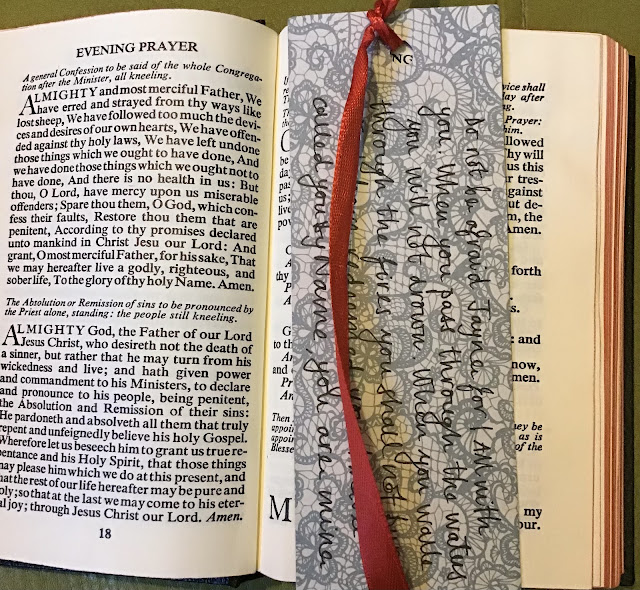The greatest of these
“I love your new shoes!”
“Love you, babe!”
“Lovin’ this new tune.”
Love.
The greatest of all spiritual gifts, reduced to a filler word, bandied about too readily, and devalued in the process.
Of course, there are two meanings of love; it is both a noun and a verb. When Paul declared love “the greatest of these” he was certainly writing about love as an action; something which we do, respond to and live out, not merely an effusive description to express how much we approve of something.
Let's consider Paul’s famous and fulsome account of love in 1 Corinthians 13:
Paul’s letter to the people of Corinth comes shortly after his description of spiritual gifts that people might be blessed with. It's not unreasonable to assume then that this beautiful and oft-quoted chapter (a favourite verse for weddings) is an admonition to the people of Corinth about using their gifts wisely, and tempering them with love. Indeed, does Paul not say in verse one, that even if a person speaks in tongues but doesn't have love, then they are nothing more than a “resounding gong or clanging symbol?” In other words, you may have been given the gift of tongues, but if you don't know how to love, then you'll just be making a horrible din. Your gift will bless no one, least of all you.
Perhaps the people of Corinth had been so overcome by their gifts, be it tongues, prophesy, powerful faith, or generosity; that they'd just got a little carried away with themselves. Let's face it; it happens. How often have we witnessed a celebrity; perhaps a star footballer, an actor, or a talented singer-songwriter, let their ego completely over-shadow their gifting?
When we can do something, and do it well, we get all puffed up with pride, and all too often forget to behave with humility, kindness, and ultimately, with love.
But what is this love of which Paul speaks? How does he describe it?
“4 Love is patient, love is kind. It does not envy, it does not boast, it is not proud. 5 It does not dishonour others, it is not self-seeking, it is not easily angered, it keeps no record of wrongs. 6 Love does not delight in evil but rejoices with the truth. 7 It always protects, always trusts, always hopes, always perseveres.”
According to Paul then, love is patient, kind, trusting, hopeful, protective, steadfast, respectful, and truthful.
What isn't it? It's not boastful, proud, envious, self-seeking, angry, or unforgiving.
That’s quite some list. Mmm...I begin to see why the principle of loving, and living out a loving life, isn't an easy thing to do. I don't know about you, but I find it far easier to lose my temper; hold a grudge; (especially against you Audi driver; you know who you are) give up, and screech that “it’s not fair!” when things go wrong; indulge in gossip when I ought to know better; and heartily envy Jamie Oliver’s wife, Jools, for still being stick thin, despite having had five children – how does she do it? How?!
Once again, when confronted with the unpleasant side-effects of my all too human nature, I'm convinced anew that I need Jesus more than ever. Because isn't He the epitome of love, in action, word, and deed? He’s the antidote to all that anti-loving distastefulness, and Paul helped us to see that in this letter to the people of Corinth. It was as true then, as it is now.
However, it's easier to read it, than it is to actually follow. Loving Jesus? Well that's a cinch. Consider it done. Loving my children? Every darn day, with every breath and every fibre of my being. They are the squeeziest, most loveliest creatures I've ever known. My husband? Well, duh. Of course. My parents? Yep, they're cool. My brother? Erm…most of the time. Just kidding!
The point is, it’s easy to love those who are lovable, and/or those people who love us. It's easy to feel virtuous and like we’re rocking 1 Corinthians 13, when we’re just talking about our close relationships and friendships. My challenge – our challenge – is to love, without condition, without hope of reward, without agenda (except for God’s agenda, but that's a given) and without limits. So, I’d like to add to Paul’s list of the characteristics of love, by including all the things that he didn't mention:
Love is sometimes hard at first, but it does get easier with practise…bit like jogging. Also, like jogging, it hurts. Sometimes, it hurts a lot.
Love is painful.
Love is uncomfortable.
Love is difficult.
Love is time-consuming.
Love is frustrating.
Love is exhausting.
Love needs to be repeated over and over again until it becomes a habit.
And then love is joyful.
Love is thrilling.
Love is calming.
Love is both the balm which takes the sting out of the pain of life, and it is the sticking plaster which covers up the wound while it heals.
Love is both the absence of and the cure for every single churlish, mean-spirited, belligerent, and snippy thought.
Love is a lens through which we see one another as God sees us. It is in the big gestures that we can all see, and it exists in the tiniest of acts. It is saying, “no, you first,” and not me. It looks like justice, and it looks like mercy. It often looks messy, beautiful, complicated and grim. It looks like a precious, brand new baby, lying in a manger, and it looks like a brutalised man, hanging upon a cross.
It is the reason we have hope, and it allows our faith to flourish.
And that's why it's the greatest of them all.






Comments
Post a Comment